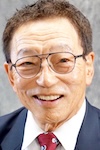
David Miyoshi
In recognition of the 50th anniversary of the end of the Vietnam War, the Nisei Week Foundation recently awarded its 2025 Inspiration Award to all Japanese American Vietnam War veterans — a first in its history. As a Sansei veteran and former Marine Corps officer, I feel compelled to honor my fellow warriors whose voices, often left in silence, shaped our generation.
Before the War: Camps, Streets and Quiet Defiance
Many of us grew up unaware of our families’ internment stories during World War II. My own family, spared incarceration by geography, left me with a different silence, one shaped by empathy for my brothers whose families were uprooted, humiliated and returned without acknowledgment. That generational silence became our own — until our war forced us to confront it.
In that silence, we sought belonging in the streets: East L.A., Crenshaw, Sawtelle, Westside, Little Tokyo, Gardena. Street clubs like the Devastators, Dominators, Algonquins, Buddha Bandits and Black Juans gave us identity, edge and expression. For some, toughness learned on the streets made the transition to military life natural once the draft came calling.
Inherited Wounds
Internment wasn’t just history — it was trauma handed down. Some families resisted, split by betrayal or advised by lawyers to preserve citizenship at all costs. That defiance carried a price: shame, silence, emotional distance.
Labor and Legacy
After WWII, many Nisei fathers returned to gardening, not just for income, but for restoration of pride. Under that sun, our own identities were shaped.
Youth Culture in Flux
Trench coats, khakis, Sir Guy shirts, French-toe shoes. Our style, our swagger — blending Black, Chicano and Asian influences — was not rebellion alone. It was armor. For many, street club life offered both shield and statement. When arrests came or dropout paths narrowed, military service became the alternative. Or the escape.
Into the Uniform
Enlisting wasn’t always about patriotism, it was about survival, purpose and a way forward. Boot camp brought brutality — physical, emotional and racial. Our Asian faces marked us as enemy surrogates before we ever deployed. One episode seared itself into memory: I was ordered to dress in “gook” garb — coolie hat, black pajamas, rifle in hand — as the drill instructor shouted, “When you see this in Nam, you kill it.”
Vietnam: First Impressions and Moral Fog
Stepping off the plane, the heat and stench hit hard. Some of us saw bodies before landfall. The contradictions were vivid: serene locals, drug rituals, cruel beauty and the haze of violence.
Friendships with Vietnamese civilians coexisted with moments of horror — children tricked with booby-trapped candy, elders executed without hesitation.
Drugs, Defiance and Spirit
Marijuana, hash, opium — more than vices, they were escape hatches. Protests in disguise. Spiritual acts of rebellion. Some of us resisted orders, staged stoppages, sank into quiet revolt — echoes of our families’ resistance decades prior. As an officer, I had to tread the straight and narrow and enforce reprimand of the violators, but somehow, I knew the cause of their rebellion.
Coming Home: Disoriented and Dismissed
Re-entry meant facing anti-war activists, emotionally distant families and inner collapse. Some of us retreated into garages turned foxholes. Others returned to campus, carrying the contradictions. Honored by few. Judged by many.
Student protestors spoke of peace. But for us? We had earned our voices the hard way. “I earned my voice,” said one JA veteran, “by being in the trenches.”
Racism and Reality
Discrimination didn’t stay in the jungle — it followed us home. A white girlfriend meant eviction threats in the South. Racist slurs reminded us that Japanese Americans, in some eyes, stood barely above Black Americans. The homecoming wasn’t healing.
Education, Mistrust and Rebuilding
Some found success. Others carved out new identities through education, activism or quiet service. But mistrust lingered — of movements that didn’t understand us and leaders who inflated body counts for optics.
Still, through resilience, faith and cultural inheritance, the JA Sansei veteran prevailed — channeling the pioneer spirit of our Nisei fathers in WWII. That same spirit earned respect, reshaped perceptions and upheld the honor of our families and our nation. Courage. Loyalty. Commitment. Sacrifice. The pioneering spirit of our forefathers, which forever changed the nation’s perception of Japanese Americans, is the legacy that the JA Sansei Vietnam veterans carry forward to enrich posterity.
Congratulations to all Japanese American Vietnam veterans for being awarded the Nisei Week 2025 Inspiration Award. You deserve it.
Vietnam veteran David Miyoshi was honored recently by the Nisei Week Foundation with its 2025 Pioneer Spirit Award.



